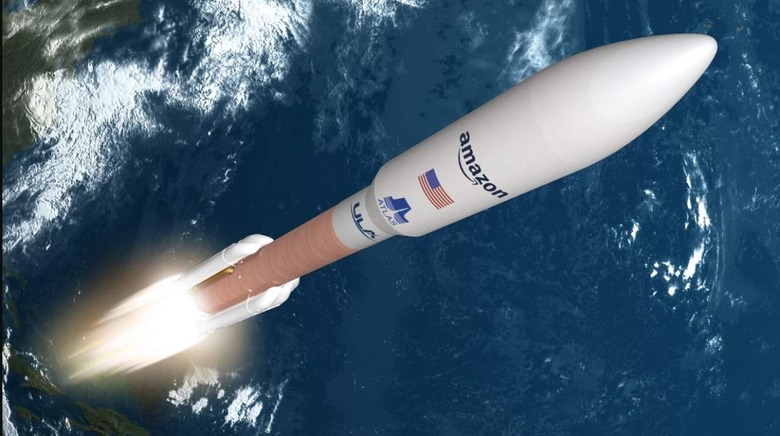Amazon Wants Permission From The FCC To Add 4500 Satellites To Its Constellation
Along with SpaceX, Amazon was one of the companies that sought permission to put a constellation of satellites into orbit to deliver broadband Internet service around the globe. Delivering broadband Internet connectivity from orbit is an ideal method of bringing Internet connectivity to parts of the US that aren't served by broadband today. However, in many parts of the US, broadband speeds are extremely slow, and there is only one carrier meaning no competition typically leading to higher prices and slower speeds. Satellite broadband also adds more competition for underserved areas.
While SpaceX is certainly the most well-known company putting satellites in orbit, Amazon is also working on a constellation of satellites. Recently, Amazon began seeking approval from the FCC to launch more than 4500 satellites in its satellite Internet project, known as Project Kuiper. Previously, Amazon intended to build 3236 satellites, and with the request for an additional 4500 satellites, the company wants to launch a total of 7774 satellites.
In addition to asking for permission to add 4500 satellites to the constellation, Amazon also requested that the FCC allow it to launch and operate two prototype satellites to be placed in orbit by the end of 2022. Amazon stated in the filing that its satellites would serve households, hospitals, businesses, government agencies, and other organizations globally, particularly in areas where reliable broadband is lacking. Many of us in the US take reliable broadband for granted, but many rural communities and those in developing nations lack broadband access.
Even in areas where broadband is available, Satellite-based Internet from Amazon and SpaceX will add competition, hopefully resulting in lower pricing and better service. Amazon pointed out in its filing that while the availability of broadband is improving, only 51 percent of the population around the globe is online. In developing nations, the percentage of the population that is online is even worse at 41 percent.
Both Amazon and SpaceX will have additional competition in the future, with the FCC recently granting approval to Boeing to launch 147 satellites to provide Internet access from orbit. SpaceX currently has the largest satellite fleet deployed, with more than 1700 satellites currently circling the earth. In the coming decades, SpaceX plans to launch many as 42,000 satellites.

Amazon founder Jeff Bezos also founded Blue Origin, a space launch service attempting to compete with SpaceX. Presumably, at some point in the future, Project Kuiper satellites will launch utilizing Blue Origin rockets. However, in April of this year, it was confirmed that Amazon would utilize United Launch Alliance rockets to put its satellites into orbit.
Amazon has also petitioned the FCC to slow SpaceX's deployment of Starlink satellites. Amazon has asked the FCC to consider Starlink a "newly designated system" which would subject the satellites to a wider range of regulatory processing. That request came after SpaceX submitted a modification to its original deployment plans in 2020. The modification request that triggered Amazon was a request to move 2800 of the satellites in its initial launch phase to a lower orbit than the FCC originally authorized. SpaceX said at the time that Amazon was trying to hamstring its operations because it was years away from launching its first satellites.Amazon first sought FCC approval for its Project Kuiper constellation in 2019. In December 2020, Amazon hit a milestone in its project with the announcement that it had completed the initial development of the antenna for the low-cost terminal that would allow subscribers to connect to the satellites as they pass overhead. Amazon said the time that its prototype was able to support up to 400 Mbps speeds.
